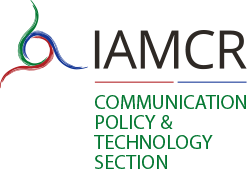
We are very pleased to announce the recipients of the Best Paper Award from Cartagena, 2017.
This year we have decided to present a main award to Ghalia Abu-Kaf, Amit M. Schejter, Muhammad Abu Jafar and an emerging scholar award to Félix Tréguer. In our view, both papers best represent the balance of theory, research, writing and policy engagement that we welcome in the tradition of CP&T, as well as, in Félix's case, exceptional promise as a young researcher.
Please find below some details on both papers and their authors. Please join us in congratulating them!
CP&T 2017 Best Paper Award
'The Bedouin Divide: Broadband Access in the Negev'
Ghalia Abu-Kaf, Amit M. Schejter, Muhammad Abu Jafar, Ben-Gurion University of the Negev
This first-of-its-kind inventory of wireless services available to the Bedouin community demonstrates empirically the combined effect of discriminating state policies and industry neglect of a poverty-stricken and systematically marginalized community. Incorporating a critical analysis of policy, systematic mapping of infrastructure and facilities, and industry responses, this study paints a picture of exclusionary practices and the way they are implemented and justified in the digital wireless media industry.
Ghalia Abu-Kaf is a PhD candidate in the Department of Communication Studies at Ben-Gurion University of the Negev
Amit M. Schejter is Professor and Head of the Department of Communication Studies at Ben-Gurion University of the Negev and Co-Director of the Institute for Information Policy at Penn State
Muhammad Abu Jafar is a graduate student in the Master’s Program (research track) in the Department of Communication Studies at Ben-Gurion University of the Negev
CP&T 2017 Emerging Scholar Best Paper Award
'Alternative Internet Networks: History and Legacy of a Crazy Idea'
Félix Tréguer, ISCC-CNRS and Ecole des Hautes Études en Sciences Sociales, France
This paper looks at recent instances of alternative communications networks – namely two Internet community networks that emerged in the 1990's in France and Great Britain – to draw lessons for similar contemporary initiatives. We first consider the case of the French Data Network (FDN). Founded in 1992 and still in operation, FDN was the first Internet access provider available to the general public. It navigated regulatory changes in the telecom sector by becoming increasingly tied to the emerging digital rights movement and contributing to the emergence of a “critical Internet user” (Paloque-Bergès, 2015). Second, we turn to Consume.net, a collective associated with the London counter-cultural scene. From 1999 to 20003, Consume.net took advantage of the new WiFi protocols to subvert incumbent telecom operators’ hold on last-mile networks and promote a grassroots and locally-grounded approach to building and managing “wide area” networks (Medosch, 2014).
Based on existing literature, interviews with the founders of these initiatives as well as content and policy analysis, these two case-studies hold important lessons for today's community networks. While they confirm that community networks can emerge from diverse actors, with different motivations, political cultures, technical models or pricing schemes, they also show that these initiatives face two major challenges to ensure their sustainability: the articulation of local and global scales in connectivity needs, and the need to build advocacy capabilities aimed at influencing regulatory developments. But by tackling these challenges, community networks can become a strategic locus for reinterpreting traditional “mediactivism” in the digital era.
Félix Tréguer studies past and present power struggles surrounding the design and use of communication technologies by blending legal and policy analysis, history as well as political theory and sociology. He currently works on two research projects: one on communication surveillance and post-Snowden controversies (UTIC, CERI-Sciences Po), the other on community-owned telecom networks across Europe (netCommons, ISCC-CNRS). He is a founding member of the French digital rights group La Quadrature du Net. He is just completing his PhD at Ecole des Hautes Études en Sciences Sociales, France.